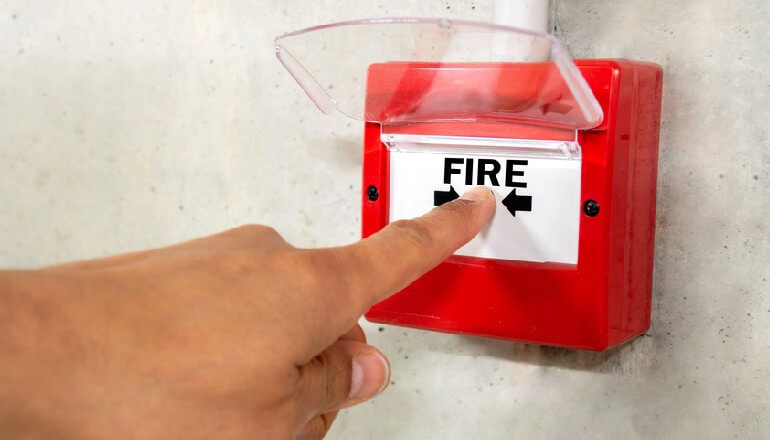Fire Alarm Requirements for Commercial Buildings in the UK
Safety and the Law Go Hand in Hand
Commercial Fire Alarm Harrogate – In any workplace, protecting people from fire isn’t optional. Fire alarms are the first line of defence, giving early warning so staff, visitors, and customers can get out safely. In the UK, they’re also a legal requirement for commercial premises — and not meeting the rules can have serious consequences.
The Legal Backbone
For businesses in England and Wales, the Fire Safety Order 2005 sets out the responsibilities. It places the duty on a “responsible person” — often the owner, landlord, or employer — to make sure a suitable fire detection and alarm system is in place. Scotland and Northern Ireland have their own equivalent regulations, but the principle is the same.
The regulations don’t spell out one exact type of system for every building. Instead, the requirement is for an appropriate system that matches the size, use, and risks of your premises.
The Role of Standards
While the law sets the duty, British Standards explain how to meet it. BS 5839-1 is the main standard for non-domestic fire alarm systems. It covers:
- How systems should be designed and installed
- What types of detectors and alarms should be used
- How systems must be tested, maintained, and documented
The latest 2025 edition includes updates such as stronger guidance on smoke detection in sleeping areas and clearer rules on alterations to existing systems. Commercial Fire Alarm Harrogate
What “Appropriate” Looks Like
What’s right for one building may be inadequate for another. For example:
- A small, low-risk shop might only need manual call points and sounders.
- A hotel, care home, or large office will require automatic detection and a more complex system with multiple zones.
- Spaces where people may not hear an audible alarm might need visual alarms or voice alarm systems.
The fire risk assessment is what determines the level of system required.
Testing, Maintenance, and Records
Having a system is only half the job. To stay compliant you must:
- Test alarms regularly (often weekly).
- Arrange professional servicing at recommended intervals.
- Keep clear maintenance and test records.
This not only keeps the system reliable but also demonstrates compliance if inspected.
Why It Matters
Ignoring fire alarm requirements can result in:
- Enforcement notices or even prohibition of building use
- Fines and possible prosecution
- Insurance issues if systems aren’t up to standard
- Most importantly, avoidable risk to life and property
The Bottom Line
UK law doesn’t demand the same alarm system for every workplace. It demands a system that’s suitable for your building, based on risk, correctly installed, and properly maintained. Done right, it keeps you compliant, protects your business, and — above all — safeguards the people inside.



